Episodes
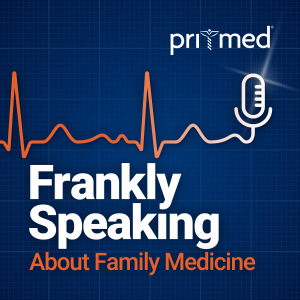
Monday Dec 21, 2020
Monday Dec 21, 2020
Credits: 0.25 AMA PRA Category 1 Credits™
Claim CME/CE credit: https://www.pri-med.com/online-education/podcast/frankly-speaking-cme-203
Overview: Join us as we discuss the risks of elevated cholesterol when consuming coconut oil.
Guest: Jill Terrien, PhD, ANP-BC
Music Credit: Richard Onorato
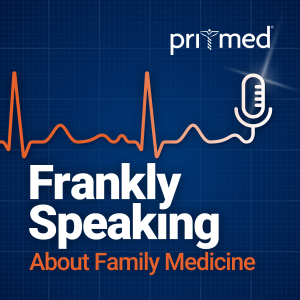
Monday Dec 14, 2020
Monday Dec 14, 2020
Credits: 0.25 AMA PRA Category 1 Credits™
Claim CME/CE credit: https://www.pri-med.com/online-education/podcast/frankly-speaking-cme-202
Overview: There are many aspects of the COVID-19 pandemic that clinicians need to stay current with. In this episode we will briefly review ten hot topics related to COVID-19, including but not limited to: testing, vaccines, and reinfection.
Guest: Alan Ehrlich, MD, FAAFP
Music Credit: Richard Onorato
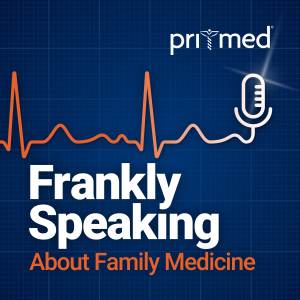
Monday Dec 07, 2020
Monday Dec 07, 2020
Credits: 0.25 AMA PRA Category 1 Credits™
Claim CME/CE credit: https://www.pri-med.com/online-education/podcast/frankly-speaking-cme-201
Overview: Various organizations develop guidelines to assist with patient care. This episode will review the most significant changes to the U.S. Department of Veterans Affairs and U.S. Department of Defense (VA/DoD) Clinical Practice Guidelines for the Management of Dyslipidemia for Cardiovascular Disease Risk Reduction.
Guest: Robert Baldor, MD, FAAFP
Music Credit: Richard Onorato
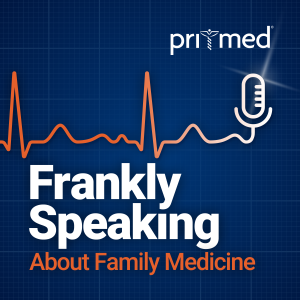
Monday Nov 30, 2020
Monday Nov 30, 2020
Credits: 0.25 AMA PRA Category 1 Credits™
Claim CME/CE credit: https://www.pri-med.com/online-education/podcast/frankly-speaking-cme-200
Overview: Join us for the 200th episode of Frankly Speaking about Family Medicine! In this episode, each podcaster will review their favorite topics since the inception of this podcast and will describe patient encounters where this practice changing knowledge was helpful.
Guest: Alan Ehrlich, MD, FAAFP; Robert A. Baldor, MD, FAAFP; Susan Feeney, DNP, FNP-BC, NP-C; Jill Terrien, PhD, ANP-BC
Music Credit: Richard Onorato
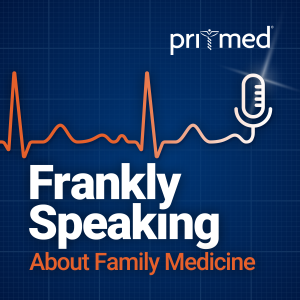
Monday Nov 23, 2020
Monday Nov 23, 2020
Credits: 0.25 AMA PRA Category 1 Credits™
Claim CME/CE credit: https://www.pri-med.com/online-education/podcast/frankly-speaking-cme-199
Overview: Microhematuria is a common finding. It is usually benign, but it needs proper evaluation since it may also be a sign of malignancy. A risk-based approach can avoid unnecessary testing, while still identifying those patients with malignancy. Recent American Urological Association (AUA) guidelines use a validated risk-based approach.
Guest: Alan Ehrlich, MD
Music Credit: Richard Onorato
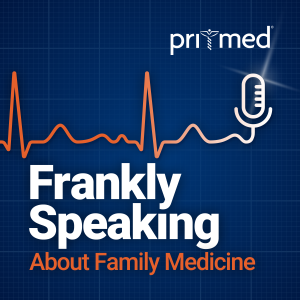
Monday Nov 16, 2020
Monday Nov 16, 2020
Credits: 0.25 AMA PRA Category 1 Credits™
Claim CME/CE credit: https://www.pri-med.com/online-education/podcast/frankly-speaking-cme-198
Overview: Upper respiratory tract infections (URTI) are one of the most common conditions seen in primary care. Effective treatments for this acute, bothersome illness are limited; inappropriate antibiotic prescribing and use of therapeutics with little evidence of effectiveness are common. Join our discussion as we discuss a recent meta-analysis from the BMJ which suggests that honey, in any form, is superior to usual, common treatment for URTIs.
Guest: Susan Feeney, DNP, FNP-BC, NP-C
Music Credit: Richard Onorato
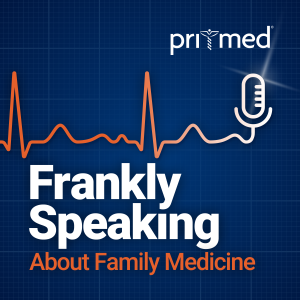
Monday Nov 09, 2020
Monday Nov 09, 2020
Credits: 0.25 AMA PRA Category 1 Credits™
Claim CME/CE credit: https://www.pri-med.com/online-education/podcast/frankly-speaking-cme-197
Overview: This episode will review how to best care for patients who present with respiratory symptoms during the fall and winter.
Guest: Alan Ehrlich, MD
Music Credit: Richard Onorato
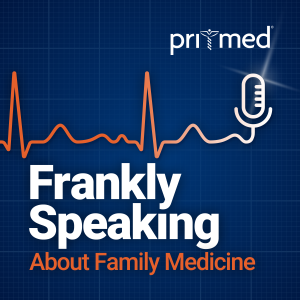
Monday Nov 02, 2020
Monday Nov 02, 2020
Credits: 0.25 AMA PRA Category 1 Credits™
Claim CME/CE credit: https://www.pri-med.com/online-education/podcast/frankly-speaking-cme-196
Overview: The New England Journal of Medicine recently published an evidence-based review of the benefits and harms related to caffeine and coffee consumption.
Guest: Robert Baldor, MD, FAAFP
Music Credit: Richard Onorato
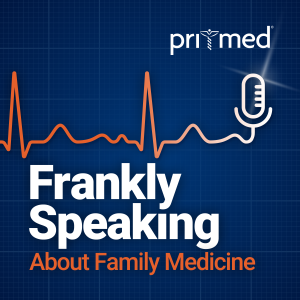
Monday Oct 26, 2020
Monday Oct 26, 2020
Credits: 0.25 AMA PRA Category 1 Credits™
Claim CME/CE credit: https://www.pri-med.com/online-education/podcast/frankly-speaking-cme-195
Overview: For patients who have hip replacement or knee arthroplasty there is an increased risk of venous thromboembolism This episode will review the effectiveness of aspirin for preventing VTE in this population
Guest: Robert Baldor, MD, FAAFP
Music Credit: Richard Onorato
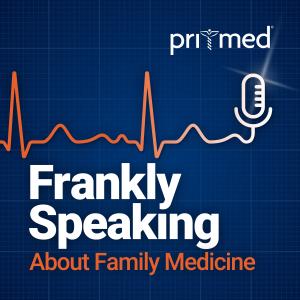
Monday Oct 19, 2020
Monday Oct 19, 2020
Credits: 0.25 AMA PRA Category 1 Credits™
Claim CME/CE credit: https://www.pri-med.com/online-education/podcast/frankly-speaking-cme-194
Overview: The available evidence on alcohol consumption and its relationship to health is abundant, varied, and often conflicting. The evidence that excessive consumption is associated with poor outcomes is consistent; however, evidence on low-to-moderate alcohol consumption has ranged from poor outcomes to no impact to improved outcomes. Join us while we discuss new evidence that reveals an association between low-to-moderate alcohol use in white middle-to-older aged adults and improved cognition.
Guest: Susan Feeney, DNP, FNP-BC
Music Credit: Richard Onorato









